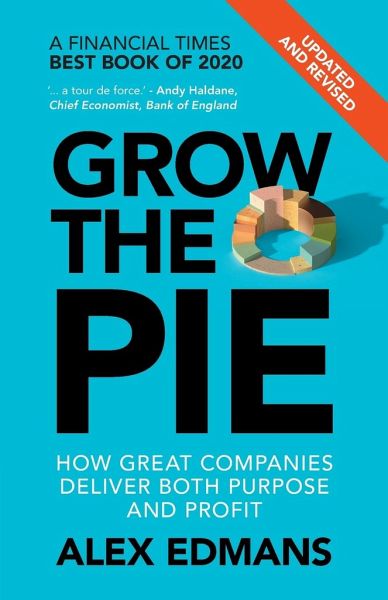
Grow the Pie
How Great Companies Deliver Both Purpose and Profit - Updated and Revised

PAYBACK Punkte
7 °P sammeln!
A Financial Times Book of the Year 2020! Should companies be run for profit or purpose? In this ground-breaking book, acclaimed finance professor and TED speaker Alex Edmans shows it's not an either-or choice. Drawing from real-life examples spanning industries and countries, Edmans demonstrates that purpose-driven businesses are consistently more successful in the long-term. But a purposeful company must navigate difficult trade-offs and take tough decisions. Edmans provides a roadmap for company leaders to put purpose into practice, and overcome the hurdles that hold many back. He explains h...
A Financial Times Book of the Year 2020! Should companies be run for profit or purpose? In this ground-breaking book, acclaimed finance professor and TED speaker Alex Edmans shows it's not an either-or choice. Drawing from real-life examples spanning industries and countries, Edmans demonstrates that purpose-driven businesses are consistently more successful in the long-term. But a purposeful company must navigate difficult trade-offs and take tough decisions. Edmans provides a roadmap for company leaders to put purpose into practice, and overcome the hurdles that hold many back. He explains how investors can discern which companies are truly purposeful and how to engage with them to unleash value for both shareholders and society. And he highlights the role that citizens can play in reshaping business to improve our world. This edition has been thoroughly updated to include the pandemic, the latest research, and new insights on how to make purpose a reality.




